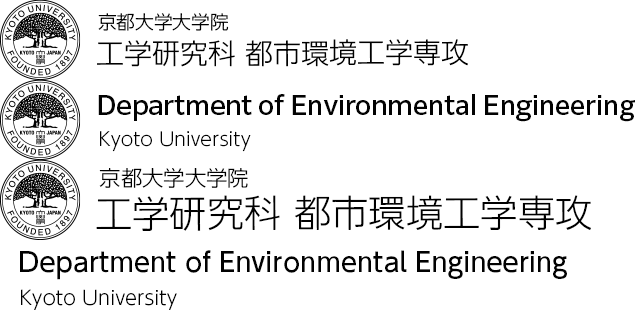Global Environmental System
Japan and many other countries have declared the goal of virtually eliminating CO2 emissions, and the world is moving full steam ahead toward the international goal of limiting global average temperature increase to within 1.5°C. According to the latest IPCC (Intergovernmental Panel on Climate Change) report, many scenarios for limiting temperature rise within 1.5°C depend not only on emission reductions but also on technologies that capture a reasonable amount of CO2 from the atmosphere in the second half of the 21st century (hereinafter called CDR: Carbon Dioxide Removable). However, there are currently a variety of technology options to reduce CO2 emissions. However, there is currently a lack of comprehensive evaluation of the combination of various technology options and their associated risks, synergies, and trade-offs. Therefore, this course aims to evaluate the effectiveness and limitations of innovative technologies to achieve zero greenhouse gas (GHG) emissions and absorption from social, economic, and technological perspectives using a global integrated assessment model, and to present them together with various social and environmental side effects. The four core target CDR technologies are the use of biomass with carbon sequestration and storage (CCS), CO2 direct air capture, afforestation, and soil carbon sequestration. While conducting interdisciplinary academic activities, this course will produce human resources with advanced skills and experience to realize sustainable corporate activities through research activities that support the decarbonization activities of companies across a wide range of industries.
Academic Staff
Shinichiro FUJIMORI
Professor (Graduate School of Engineering)
Research Topics
- Climate change mitigation
- Climate change impact and adaptation
- Integrated assessment modeling
Contacts
Room 363 (C1-3), C-cluster, Katsura Campus
TEL: +81-75-383-3367
FAX: +81-75-383-3371
E-mail: sfujimori![]() athehost.env.kyoto-u.ac.jp
athehost.env.kyoto-u.ac.jp
Tomoko HASEGAWA
Program Specific Associate Professor (Graduate School of Engineering)
Research Topics
- Agricultural economic modeling
- Land-use modeling
Contacts
Katsura Campus, C-cluster, C1-3, Room 369
TEL: +81-75-383-3369
E-mail: hasegawa.tomoko.2j![]() kyoto-u.ac.jp
kyoto-u.ac.jp
Saritha VISHWANATHAN
Program Specific Assistant Professor (Graduate School of Engineering)
Research Topics
- National modeling and scenario assessment
- Socio-technical transitions
- Institution and policy analysis
Contacts
Room 367 (C1-3), C-cluster, Katsura Campus
TEL: +81-75-383-3370
FAX: +81-75-383-3371
E-mail: vishwanathan.saritha.5t![]() kyoto- u.ac.jp
kyoto- u.ac.jp
Research Topics
Development of Agriculture and Land Use Models
In this theme, we will use grid-based and country-specific models to estimate global, Asian, and Japanese agriculture and land use in the short- to medium- to long-term, from 2030 to 2100. The interrelationships between climate change, agricultural markets, food security, and biodiversity will also be clarified. Can biodiversity conservation and climate change solutions be compatible? What changes will be required in our diets? This theme will answer such questions.
Building country-specific scenarios and developing generic methods for this purpose
Given the recent situation in which global decarbonization and emission reduction targets have been established to some extent, it is almost inevitable that integrated assessment models will require more specific and real policy-useful research. In the latest IPCC report, for the first time, Working Group III has a chapter that focuses on country-specific scenarios. In light of these developments, national scenarios are likely to become increasingly important over the next 5-10 years. This theme, how to analyze global national decarbonization targets in a consistent and cross-country manner, is the central question to be examined.
Laboratory Website
http://www.athehost.env.kyoto-u.ac.jp/
